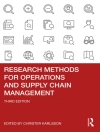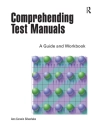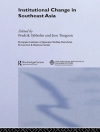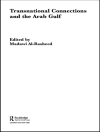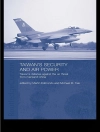‘As both an academic instructor in questionnaire design and a research design methodologist for the federal government, I feel this book is very timely, useful for students and practitioners, and unique in its use of real world practical examples that most everyone can relate.’
—Terry Richardson, General Accounting Office
‘The combination of theory and practical application will make this a useful book for students as well as professionals who want to learn how to incorporate cognitive interviewing into the questionnaire design process.’
—Rachel Caspar, RTI International
The design and evaluation of questionnaires—and of other written and oral materials—is a challenging endeavor, fraught with potential pitfalls. Cognitive Interviewing: A Tool for Improving Questionnaire Design describes a means of systematically developing survey questions through investigations that intensively probe the thought processes of individuals who are presented with those inquiries. The work provides general guidance about questionnaire design, development, and pre-testing sequence, with an emphasis on the cognitive interview. In particular, the book gives detailed instructions about the use of verbal probing techniques, and how one can elicit additional information from subjects about their thinking and about the manner in which they react to tested questions. These tools help researchers discover how well their questions are working, where they are failing, and determine what they can do to rectify the wide variety of problems that may surface while working with questionnaires.
Cognitive Interviewing is ideally suited as a course text for advanced undergraduate and graduate research courses across the social sciences. Professional researchers and faculty in the social sciences, as well as practice fields such as medicine, business, and education, will also find this an invaluable reference for survey research. There is no other book on the market that covers cognitive interviewing as applied to questionnaire design.
Tabella dei contenuti
ORIENTATION AND BACKGROUND
Introduction to Cognitive Interviewing
What is (and isn′t) cognitive interviewing?
A broader perspective: The cognitive testing process
Setting the Stage: First Principles of Questionnaire Design
Questionnaire-related (and other) sources of error in self-report surveys
Why do survey questions produce response error? A sociolinguistic perspective
How can we avoid problems in survey questions?
If we are proficient designers, why do we need to test questions?
Chapter summary
Exercise: Question evaluation
The CASM Approach to Questionnaire Design
Origins of CASM
Applications of Basic CASM Research
Cognitive interviewing as Applied CASM Research
Chapter summary
Cognitive Interviewing in Practice: Think-Aloud, Verbal Probing, and Other Techniques
Think-Aloud interviewing
Verbal Probing Techniques
Concurrent versus retrospective interviewing
Choosing between think-aloud and probing techniques
Vignettes, card sorts, and field-based probes
Chapter summary
THE INTRICACIES OF VERBAL PROBING
Developing Standard Cognitive Probes
Examples of cognitive probing
Logical and structural problems
A systematic approach to probe development: The Question Pitfalls Model
Chapter summary
Exercise: Using the QAS to develop probe questions
Beyond the Standard Model of Verbal Probing
A classification of probe types
Proactive versus Reactive probing
Standardized versus free-form probes
Chapter summary
Exercise: Emergent probing
A Further Perspective: Probing as Expansive Interviewing
A broad view of cognitive interviewing
The Ethnographic Interview as an alternative perspective
Merging Cognitive and Expansive interviewing
Chapter summary
Avoiding Probing Pitfalls
Are we in danger of finding problems that don′t exist?
Practices that avoid artificial problems
Chapter summary
THE COGNITIVE TESTING PROCESS
Training of Cognitive Interviewers
Who makes a good cognitive interviewer?
Technical background of the cognitive interviewer
How should cognitive interviewer training be accomplished?
Continuing education in cognitive interviewing
Chapter summary
Planning and Conducting Cognitive Interviews
Fitting cognitive testing into the overall design sequence
Preparing for the interview: Subject recruitment
The interviewing process
Logistic issues in the cognitive interview
Chapter summary
Analyzing and Documenting Cognitive Interview Results
Characterizing cognitive interview outcomes
The analysis of think-aloud interview results
Analysis of the probed interview
Persistent analysis issues
Chapter summary
Exercise: Analyzing cognitive interviews
OTHER ISSUES AND TOPICS
Special Applications of Cognitive Interviewing
Adjusting to survey administration mode
Cognitive testing of sensitive questions
Cognitive interviewing and establishment surveys
Testing questions on attitudes and opinions
Interviewing across the age range
Testing non-questionnaire materials
Chapter summary
Evaluation of Cognitive Interviewing Techniques
Theoretical perspectives
Empirical evaluation of cognitive interviewing
Are we evaluating the right outcome?
Limitations to cognitive interviews
Chapter summary
Beyond Cognitive Testing: Affiliated Pretesting Methods
Expert Review
Focus Groups
Behavior Coding
Reinterview surveys
How do pretesting methods compare?
Chapter summary
Recommendations and Future Directions
Twelve recommendations for cognitive interviewing practice
Future directions for cognitive interviewing
A final case study
In conclusion
References
Appendix 1. Sample cognitive testing protocol
Appendix 2. Example
Circa l’autore
Gordon B. Willis is a cognitive psychologist in the Applied Research Program, National Cancer Institute, National Institutes of Health; and lectures for the Joint Program for Survey Methodology (JPSM). Prior to that, he was a research methodologist at Research Triangle Institutes in Rockville, Maryland, where he established a cognitive laboratory facility. He also worked for over a decade in the Questionnaire Design Research Laboratory at the National Center for Health Statistics, CDC, developing and applying cognitive interviewing techniques. Dr. Willis attended Oberlin College, and received a Ph.D. in cognitive psychology from Northwestern University. He now works mainly on the development and evaluation of questionnaires that collect information on cancer risk factors. His main research interest is the evaluation of survey pretesting techniques, especially the cognitive interview. Dr. Willis is an authority on the use of cognitive interviewing, based on his work on developing and practicing these methods at three different organizations. He has personally conducted hundreds of cognitiv interviews and overseen the work of teams of interviewers. He has taught cognitive interviewing in short courses at survey conferences and in university lectures. Willis has also written extensively on the practice and theoretical and empirical evaluation of cognitive interviewing techniques.





